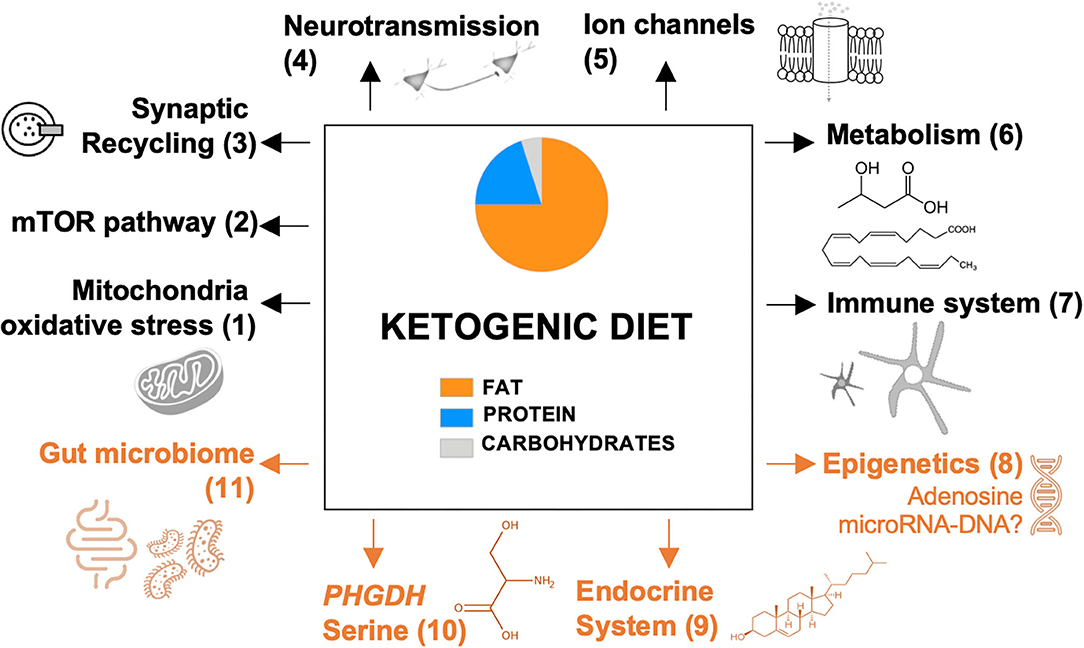The Ketogenic Diet: A Comprehensive Look at its Nutritional Impact
The Ketogenic Diet: A Comprehensive Look at its Nutritional Impact
Blog Article
As a health and wellness blogger at Yourdailyfit.com, I'm often asked about the ketogenic diet (KD) and its effects on overall health. This high-fat, low-carbohydrate diet has gained significant popularity in recent years, but what does the science say about its nutritional impact? Let's dive into a comprehensive look at the ketogenic diet and its effects on various aspects of health.

Weight Loss and Body Composition
One of the primary reasons people turn to the ketogenic diet is for weight loss. Research has shown that KD can indeed be effective for rapid weight loss in the short term. A study published in Cell Reports Medicine found that participants on a keto diet lost an average of 2.9 kg of fat mass over 12 weeks. This weight loss occurs without the need for calorie counting, as the diet naturally leads to reduced calorie intake.
However, it's important to note that the long-term sustainability of this weight loss remains a topic of debate. Some studies suggest that the rapid initial weight loss may be difficult to maintain over time.
Blood Sugar Control and Insulin Sensitivity
For individuals with type 2 diabetes or insulin resistance, the ketogenic diet shows promise in improving blood sugar control. By severely restricting carbohydrate intake, KD can lead to reduced blood glucose levels and improved HbA1c, a marker of long-term blood sugar control. Some studies have even shown that KD can reduce the need for diabetes medications in some patients.
However, a recent study revealed that the keto diet might reduce glucose tolerance, meaning the body becomes less efficient at handling carbohydrates over time. This finding underscores the importance of careful monitoring for individuals considering KD for diabetes management.
Lipid Profiles and Cardiovascular Health
The impact of the ketogenic diet on cholesterol levels and cardiovascular health is complex. While some studies show improvements in triglyceride levels and increases in "good" HDL cholesterol, others have found concerning increases in LDL cholesterol, particularly in small and medium-sized particles.
A recent study from the University of Bath found that the keto diet raised levels of apolipoprotein B (apoB), which is associated with increased risk of plaque buildup in arteries. This highlights the need for careful consideration and monitoring of lipid profiles for individuals on a ketogenic diet, especially those with existing cardiovascular risk factors.
Gut Microbiome
Emerging research suggests that the ketogenic diet may have significant impacts on the gut microbiome. The University of Bath study revealed that KD altered gut microbiome composition, notably decreasing beneficial Bifidobacteria. These bacteria play crucial roles in producing vitamins, inhibiting harmful pathogens, and even helping to lower cholesterol.
The reduction in fiber intake associated with KD (often as low as 15 grams per day, half the recommended amount) may contribute to these changes in gut bacteria populations. This alteration in the microbiome could have long-term implications for digestive health and overall wellbeing.
Neurological Effects
While not the focus of this article, it's worth noting that the ketogenic diet has shown promise in managing certain neurological conditions, particularly epilepsy. Some studies have found that KD can significantly reduce seizure frequency in patients with medication-resistant epilepsy.
Conclusion
The ketogenic diet undoubtedly has powerful effects on the body's metabolism and can lead to significant short-term weight loss. It may also offer benefits for blood sugar control in some individuals. However, the diet's impact on cholesterol levels, gut health, and long-term metabolic adaptations raises important questions about its suitability as a long-term eating pattern for everyone.
At Yourdailyfit, we believe in providing balanced, evidence-based information to help you make informed decisions about your health. While the ketogenic diet may be beneficial for some individuals, particularly in the short term or for specific medical conditions, it's crucial to approach any significant dietary change with caution and under the guidance of a healthcare professional.
Remember, the best diet is one that you can sustain long-term and that supports your overall health and wellbeing. Whether you're considering the ketogenic diet or any other eating pattern, it's essential to focus on nutrient-dense whole foods, stay physically active, and listen to your body's needs.
For more in-depth information on nutrition, fitness, and overall wellness, visit us at Yourdailyfit.com, your trusted source for health and wellness advice.
Report this page